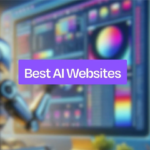Introduction
The Positive Impact of AI on Society
1. Disease Diagnosis and Prediction:
AI-driven algorithms are transforming healthcare by enabling early disease diagnosis and prediction. By analyzing vast datasets, AI tools can identify patterns and signals that may indicate the onset of diseases such as cancer and diabetes. This proactive approach not only improves patient outcomes but also enhances the efficiency of healthcare systems, making a positive impact on society.
2. Personalized Medicine:
In the realm of healthcare, AI is facilitating the shift towards personalized medicine. Through the analysis of individual patient data, AI tailors treatment plans to specific needs. This not only maximizes the effectiveness of medical interventions but also ensures a more patient-centric and positive societal impact.
3. Adaptive Learning Platforms:
AI is revolutionizing education through adaptive learning platforms. These platforms analyze individual learning patterns and adapt content accordingly, fostering a personalized learning experience. By catering to diverse learning needs, AI contributes to the positive impact of education on society.
Tools Making a Difference: AI for Social Good
AI for Social Good Tools Making a Positive Impact on Society
AI tools designed explicitly for social good are at the forefront of driving positive change. Let’s explore specific tools and their contributions.
1. Predictive Policing for Crime Prevention:
While controversial, predictive policing powered by AI can enhance crime prevention efforts. By analyzing historical crime data, AI assists law enforcement in allocating resources more efficiently. This tool, when used ethically, can contribute to a safer society.
2. Fairness in Hiring:
AI tools are addressing biases in hiring processes. By analyzing resumes and job applications, these tools help identify candidates based on skills and qualifications, promoting fairness and diversity in the workplace.
3. Disaster Response and Relief:
During natural disasters, AI aids in disaster response and relief efforts. From analyzing social media data to identify areas in need of assistance to using drones for search and rescue missions, AI contributes to more effective and efficient disaster management, making a positive societal impact in times of crisis.
Leveraging AI for Positive Social Change
AI for Social Good Tools Making a Positive Impact on Society
1. Environmental Monitoring:
AI plays a pivotal role in environmental monitoring. From analyzing satellite data to track deforestation to using sensors for air and water quality monitoring, AI tools provide valuable insights for sustainable environmental management, fostering positive societal change.
2. Precision Agriculture:
In agriculture, AI supports precision farming techniques. By analyzing data from sensors, satellites, and drones, AI optimizes crop management, reducing resource wastage and minimizing environmental impact.
3. Promoting Inclusivity in Education:
AI contributes to creating more accessible learning resources. Text-to-speech and speech-to-text technologies, powered by AI, make educational content accessible to individuals with different learning abilities, promoting inclusivity in education.
Conclusion
AI for Social Good Tools Making a Positive Impact on Society
In conclusion, the era of AI for social good is here, and its impact on society is nothing short of transformative. From advancing healthcare and education to fostering environmental sustainability and social justice, AI tools are instrumental in making a positive impact on society. As we embrace these technologies, it’s crucial to ensure ethical considerations, transparency, and inclusivity in their development and deployment. By leveraging AI for positive social change, we pave the way for a future where technology becomes a driving force in enhancing the well-being and advancement of humanity.






